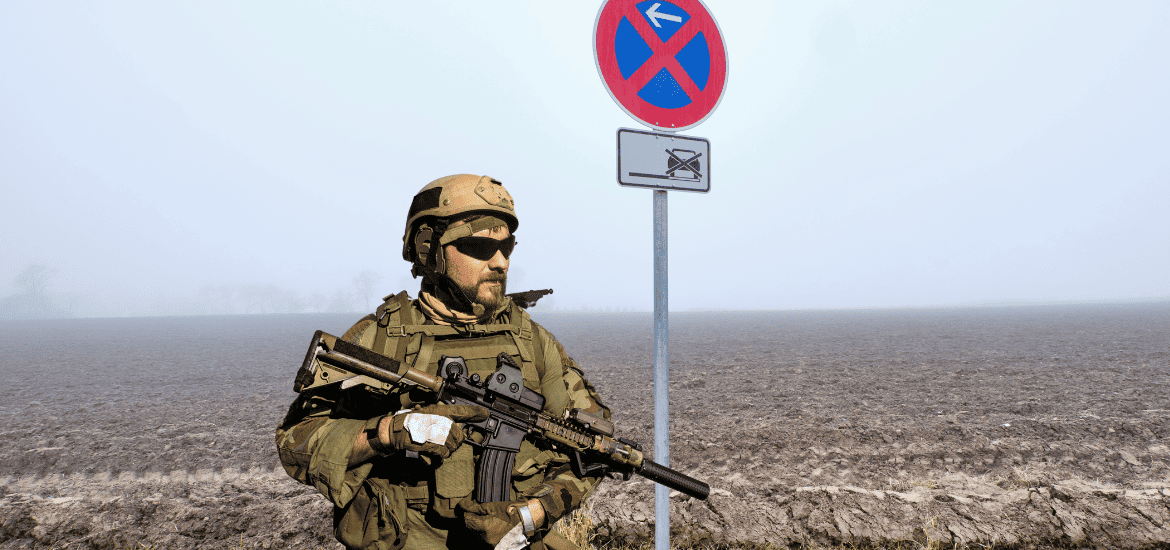Matthew 5:9 – “Blessed are the peacemakers: for they shall be called the children of God.”
In the 1970s and 80s, Canada sent thousands of troops worldwide on peacekeeping missions. The troops’ job was to ensure the conditions of a tentative truce were followed until lasting peace could be achieved.
At the time, I didn’t question that practice. But looking back many decades later, I ask myself, why did the peacekeepers carry huge weapons that were visible to the naked eye? After all, such a display would have been extremely intimidating for anyone who crossed their path.
The peacekeepers would patrol the wasteland between the two nations or regions, ensuring the opposing sides kept their distance. They did so with visible force. They’d be sticklers for the rules, and as long as they were kept, there would be an uneasy peace.
But no real, lasting peace results from armed guards standing in the middle of a No Man’s Land with their weapons drawn, making sure that neither party comes too close. The Canadian troops knew they were not there to bring peace; they were there to maintain an artificial peace.
A peacemaker is one who builds bridges and brings parties together. They encourage difficult conversations to take place. A true peacemaker embraces the slow process needed to build trust between parties who perhaps have ancient roots of conflict. A peacemaker doesn’t bring weapons of control and heavy-handed intimidation to the table.
How can you tell if you’re a peacemaker or a peacekeeper?
If you demand outward demonstrations of peace at any cost, then you are a peacekeeper. If you are someone who constantly avoids conflict, you are a peacekeeper. If you refuse to go to the root issues in a conflict because you don’t like to feel uncomfortable, you’re a peacekeeper. If you manipulate people into being silent, if you diminish another person’s pain by telling them it’s better to forgive and forget, you are not a peacemaker. You’re a peacekeeper. Or at least you’re trying to be a peacekeeper without much success.
If you put structures into place that do not allow difficult discussions between parties who need to truly hear each other, then you are a peacekeeper and not a peacemaker.
Jesus was the ultimate peacemaker. He laid himself down to become our peace. He came to Earth to reconcile us to the God who waited eagerly for us to come to Him. Jesus invited us to the table of reconciliation, not only to dialogue with Him but to come to a place of true lasting peace. Isaiah 1:18 (KJV) – “Come now, and let us reason together, saith the Lord: though your sins be as scarlet, they shall be as white as snow; though they be red like crimson, they shall be as wool.“ He then took it one step further and laid Himself down as the ultimate peace-broker, forever reconciling humanity to the One they betrayed.
If you are more of a peacekeeper than a peacemaker, perhaps it’s time to follow your leader. Decide to be a bridge builder rather than somebody who walks along the line of No Man’s land, keeping opposing parties at bay in hopes of keeping some semblance of an uncertain peace.
©2023 Katherine Walden

